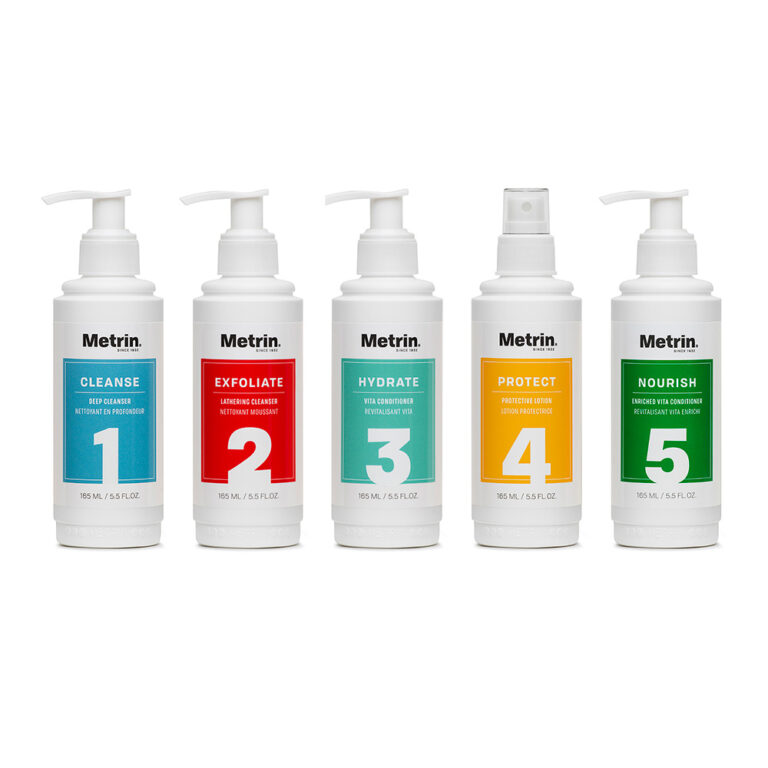Anti-Aging Skin Benefits of Vitamin D
The sunshine vitamin that helps your skin be at its best.
Vitamin D plays an important role in your health and, in particular, your skin health.
Yes, Vitamin C perhaps may be the most well-known and marketed skin care vitamin, but unlike Vitamin C, Vitamin D plays a foundational role in the health and ageing of our skin by facilitating the skin’s renewal and regeneration.
There are 2 major forms of Vitamin D – Vitamin D2 and Vitamin D3. Vitamin D2 can be formed and synthesized or obtained through foods, whereas the human skin can only produce Vitamin D3 following exposure to UVB sun radiation. Yes, this implies that appropriate skin exposure to the sun is healthy as it is the only way our skin can produce Vitamin D3 naturally.
Vitamin D3 produced by the skin provides anti-oxidant protection and improved hydration to the skin, preventing premature ageing of the skin. Vitamin D is one of the most important anti-ageing vitamins and antioxidant for your skin.
Without sufficient Vitamin D, these 5 symptoms may show up in the skin:
- Dull Complexion, lacking that desired, youthful, healthy glow;
- Experience dry, flaky skin on your face (and other areas of your body)
- Dry, irritated skin that may lead to excess skin sweat
- Acne
- And, premature signs of ageing – wrinkles and fine lines.
When the skin has a full store of Vitamin D3, it functions at its best. It helps the skin to regenerate, regulate cellular function, potentially stabilizing genes, and protect against skin cancer. It can act as an anti-inflammatory, where topical applications can treat conditions like psoriasis by normalizing cell turnover (renewal) and reduce the build-up of dead skin cells (helps create glowing skin) on the skin’s surface that lead to psoriasis plaques.
Topical application of Vitamin D is generally safe, depending on the skin care product formulation. The benefits of Vitamin D are dependent on how it is delivered to the skin, as some topical Vitamin D products can be too heavy and may be comedogenic (pore clogging) and help trigger acne.
Supplementation through oral consumption of Vitamin D needs to be calibrated properly to prevent excess consumption (not exceeding 4,000IU per day) which can lead to calcium buildup with nausea, vomiting, mental stress. Oral Vitamin D supplementation may be best done in consultation with a medical professional.
What is the best way to get Vitamin D3 to the skin?
Because the skin produces Vitamin D3 when exposed to the sun, you could increase sunlight exposure while making sure that risks of over exposure is minimized to prevent skin cancer. On the other hand, constant over protecting the skin with sunscreens is also known to contribute to Vitamin D deficiency.
Topical delivery of Vitamin D3 through the skin is safe and can be used by the skin.
One of the best ways to get the benefits of Vitamin D to your skin is through the use of skin care products containing sunflower oil, particularly the certified organic, cold pressed, high oleic sunflower oil. Not only is the sunflower oil rich in antioxidants that are anti-aging, nourishing and hydrating, it’s also rich in Vitamin E, Vitamin K and its a botanical plant oil with abundant metabolites and precursors of Vitamin D2 and D3, which converted to by used by the skin. The sunflower oil is a natural carrier oil with lipids that are easily absorbed by the skin, is non-comedogenic, hydrates and protects the skin – it even protects the skin of premature infants against skin infections. In this way, the topical application of skin care products containing the natural, botanical sunflower oil can supply and deliver Vitamin D2 and D3 to the skin for its use.
References:
- Vitamin D Deficiency: Causes, Symptoms & Treatment (clevelandclinic.org)
- Improved clinical outcomes associated with vitamin D supplementation during adjuvant chemotherapy in patients with HER2+ nonmetastatic breast cancer https://pubmed.ncbi.nlm.nih.gov/25241299/
- Russell, M. Assessing the relationship between vitamin D3 and stratum corneum hydration for the treatment of xerotic skin. Nutrients 4.9, 1213-1218 (2012)
- Christakos, S. et al. Vitamin D: metabolism. Rheumatic Disease Clinics of North America 38.1, 1-11 (2012)
- Vitamin D and skin hydration https://www.jaad.org/article/S0190-9622(12)01562-9/fulltext#relatedArticles
- Vitamin D for Psoriasis https://www.healthline.com/health/psoriasis/vitamin-d-for-psoriasis
- Covering exposed skin or using sunscreen whenever outside are risk factors for vitamin D deficiency. https://lpi.oregonstate.edu/mic/health-disease/skin-health/vitamin-D
- Plant Oils as Potential Sources of Vitamin D https://www.ncbi.nlm.nih.gov/pmc/articles/PMC4981617/
- Topical Delivery of Vitamin D3: A Randomized Controlled Pilot Study https://www.ncbi.nlm.nih.gov/pmc/articles/PMC3976443/
- Influence of sunflower seed oil on the skin barrier function of preterm infants: a randomized controlled trial https://pubmed.ncbi.nlm.nih.gov/25323538/
- Effect of skin barrier therapy on neonatal mortality rates in preterm infants in Bangladesh: a randomized, controlled, clinical trial https://pubmed.ncbi.nlm.nih.gov/18310201/







